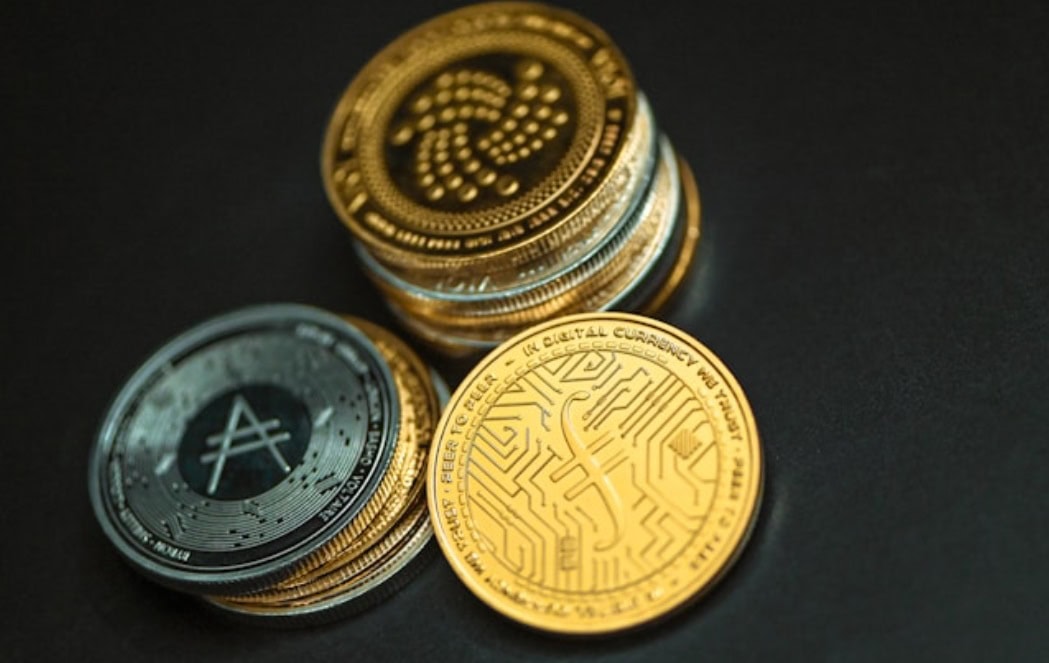It’s not often you get to see the FT openly bashing a global(ly) systematically important bank like Citi. But in March that is what we saw when Citi published it’s bitcoin ‘At the Tipping Point’ report. Whether or not it was embarrassingly bad, and who it might have been embarrassingly bad for, is what we are going to focus on today.
Hey Citi, your bitcoin report is embarrassingly bad https://t.co/wk7dsalsOH
— Finance News (@ftfinancenews) March 1, 2021
The story is a snappy piece that aims to dismantle many of the arguments put together by Citi’s Global Perspectives & Solutions division (GPS) in their report. And although the FT recommends that its readers give this one a miss, perhaps the report wasn’t targeted at the average reader of the FT. Or was it?
An initial glance at the report shows a wide selection of specialists on the subject of crypto. Two certain gentlemen stand out, they have something different about them. They are acknowledged in the report as CEO’s and professionals of some of the leading custodians, prime brokers, exchanges, infrastructure, and asset management companies.
That is not to suggest that the other specialists interviewed by Citi were not great too. It just means that these two individuals have stories that might be relevant to how the report was prepared.
The first gentleman is Zac Prince, the Founder and CEO of BlockFi. #DisruptionBanking’s first mention of BlockFi was in March 2019. Things have dramatically progressed for BlockFi and for decentralized finance (DeFi) as an eco-system since then.
Hey Citi, why did you interview BlockFi for your Report?
Within a matter of weeks following Citi’s report, a story appeared about how Grayscale Investments are in a race to launch the first bitcoin ETF. Who are the largest holders of the Grayscale Bitcoin Trust, reportedly $35 billion of it? BlockFi.
Prince’s BlockFi had already been in the news on the same day. This time, it was because BlockFi had received a staggering $350 million in a fourth round of funding, Bain Capital Ventures were one of the investors. The valuation of BlockFi has now started to hit the heights that we have previously seen unicorns like Robinhood and Coinbase hit, just before talk of their IPOs started.
“We’re very fortunate to be in this market with a platform that does the things that BlockFi does for our clients at a time when the ecosystem is just doing so well and garnering increased attention and adoption,” Prince said in an interview. “We’ve got a pretty unique value proposition.”
Maybe some of the ‘attention and adoption’ has increased by Citi releasing their report, It certainly helped those interested in crypto ETFs.
We have been watching BlockFi for a few years now, you might want to watch them too.
The second gentleman is Matteo Leibowitz, Strategy Lead at Uniswap. #DisruptionBanking covered a story about Uniswap in October 2020. Investors like Andreesen Horowitz were already looking at this space as early as September 2020, when the DeFi eco-system was less than $10 billion total value. Today Uniswap are one of the leaders in a space worth well over $50 billion.
Follow DeFi Pulse for more about the eco-system.
Hey Citi, why did you interview Uniswap for your Report?
Perhaps a small recap for those who are unfamiliar with Uniswap:
“Uniswap is a cryptocurrency exchange run entirely on smart contracts, letting you trade popular tokens directly from your wallet.”
Or that is how Coinbase, one of their investors, sees it.
Remember how Coinbase is worth $68 billion or more? Consider then, how Uniswap already had a higher daily volume of transactions than Coinbase as early as August 2020. What could Uniswap be worth today on those numbers?
Confusingly. Hayden Adams ‘invented’ Uniswap. He is not the CEO though. In fact, he didn’t even plan to be a smart contracts expert. He just thought Ethereum was really exciting, ethical money, etc..
There is a 2 hour+ video interview with Adams in the Tweet below. Some of the things that Adams discussed in the interview are fascinating, have a look if you get the chance:
My episode on @BanklessHQ is out now!!!
— hayden.eth 🦄 (@haydenzadams) April 2, 2021
Spent ~2.5 hrs talking with @RyanSAdams and @TrustlessState about the past present and future of @Uniswap https://t.co/TCBTfUfSr2
It is not clear either what type of role that Leibowitz actually has in the company, or is it in the community, or is it the exchange that is used in the community. This is exactly what #DigitalFintechCareers are all about. The future is still evolving in sophisticated Fintech StartUps. And, If he works with specialists like Adams, it’s safe to say that Leibowitz knows what he is doing. And, perhaps, Citi do too.
Uniswap is also available to buy on Coinbase, and it might be worth looking at the Uniswap token as it is hitting new highs of over $30 right now. It followed a similar trajectory to bitcoin itself in the last 9 months, and it continues to do well as the DeFi market grows.
“People often ask what innovation is crypto bringing to the table. The Uniswap protocol brings transparent pricing and continuous liquidity for trading, and it is doing so without large centralized market makers. Never before has the average investor had access to participate in the financial system this way.” Leibowitz shared in the Citi report:
It is a matter of ‘when’, and no longer ‘if’, banks completely adopt crypto trading, and are accepted into the wider crypto eco-system. You can be pretty sure that when the time comes, Citi will work with companies like BlockFi and exchanges like Uniswap. And now their customers can see, thanks to Citi’s report, first-hand the level of sophistication of decentralized finance.
Hey Citi, why didn’t you highlight DeFi more?
While there were a few soundbites from Prince and Leibowitz in the report, they didn’t dominate the pages of the report as much as they could have. And the FT rightly picked up on the Tether story.
The problem with how the FT highlighted Tether in their story, is, that they rightly point out the ‘ugly’ side of Crypto. How there can be a lack of transparency with some tokens, exchanges, individuals and how there have been some scandals involving regulators.
So what else is new? A lot of the readers of the report will have done their homework about bitcoin, and will probably know this stuff. Hopefully they won’t put their ‘entire’ faith behind one report when considering how to do more with crypto. Which digital currencies banks will favour is yet to be seen.
In 2017 when bitcoin first surged to $20,000 there were a lot of stories that later made people fearful of bitcoin. How many collapsed ICOs have there been as well? And how many outright ‘scams’ have people experienced with crypto and bitcoin? It makes Tether’s unfortunate run-in with the regulator pale into insignificance, doesn’t it?
It’s far more likely that a lot of the readers of the report were looking for more information about DeFi, like we were.
If there can be a criticism of the report, it’s actually probably how DeFi might have been lost in translation instead of being the centrepiece.
Ultimately, a lot of the fuss about the report appeared to centre around this particular Tweet about how Citi saw the future of bitcoin:
#Bitcoin could become the “currency of choice for international trade,” according to @Citi. https://t.co/fZcIlMRN86
— Anthony Scaramucci (@Scaramucci) March 1, 2021
If DeFi had been highlighted correctly in the report, then we’d be writing: ‘What’s all the fuss about?’ today instead.
Hey Citi, did the report send the right message?
Regulators never liked bitcoin. The concept of Quantitative Easing has been around since bitcoin was created, and Quantitative Easing has been stimulating the economy during Covid-19. Bitcoin and ethereum are hitting record highs at the same time as public debt is ballooning.
Today, the traditional finance systems are controlled by central banks. Crypto experts have commented that the explosive growth of DeFi as a technology will be more transparent than banks themselves. Perception of central banks and governments transparency has been a concern during Covid-19, with lots of people questioning how the pandemic was ‘managed’.
DeFi is still very much at the beginning of its growth, hacks and bugs still affect the eco-system. Hackers have taken advantage of the vulnerabilities of DeFi protocols to steal funds from the system. Yam Finance are one of the DeFi protocols affected by bugs discovered in the code. The Yam token price fell to less than $0.67 from an all-time high of $167.66 within 24 hours.
As we covered over Easter, bitcoin is as good as mainstream with institutional investors now. Citi’s report is helping to reinforce the message amongst their customers, that Citi, too, are doing innovation and much more.
Yes there are problems with Ripple (XRP) and Tether. At the same time, central banks around the world are talking about digital currency and even creating their own in the case of China. Were the FT looking at the right things in the report when reviewing it?
FT's reporters have spent years making silly snarky jokes about bitcoin & are now having to come to terms with institutions & their readers beginning to get into bitcoin. Behold the glee with which they celebrate discovering a wrong decimal in Citi's new bitcoin report. https://t.co/v1uhhLpTs4
— Saifedean.com (@saifedean) March 1, 2021
Citi have made a good impression on many with an interest in crypto. They have tried to define one of the most volatile sectors we have ever known, and they have made a start. In the future, DeFi will stand up to the test and Citi will be forced to cover more about how that market is growing.
For now, just consider one thing: There is over $3 billion in capital waiting to work for the DeFi eco-system in the form of ‘grants’. ‘For now’ was the key phrase to consider, of course. In the future the DeFi eco-system will be competing with banks in more ways than we can imagine right now, and Citi need to stay on top of this. We all do.
Author: Joel Oluwatobi
#DeFi #Citi #Bitcoin #Crypto #Tether #Embarrassingly #Systematically #Uniswap #DeFiPulse
















3 Responses